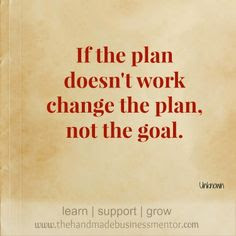1. Multimedia related works: minimum 40 documentary film topic will be captured in Chile & Bolivia.
2. Project related works: Indo-Bangla jackfruit garden will be implemented in Cochabamba, Bolivia.
3. University admission related works: Minimum 5 Bolivian universities will be contacted for admission authorization letter.
4. Photography related works: minimum 40 photography themes will be captured in Chile & Bolivia.
5. Industry related works: minimum 10 self made products will be brought in Chile and Bolivia market.
Essentials to Becoming a Millionaire Before You're 30
There are so many people today who think that their twenties are a time where they must struggle financially. However, this doesn’t have to be true. There are in fact ways to become a millionaire before you hit 30. If you dream of becoming a millionaire in your twenties, here are five of the most important things to keep in mind to achieve financial success beyond what you may have never dreamed possible.
1. Ignore traditional industries.
Lawyer or doctor is not on a path to becoming a millionaire in your twenties. Those professions require many extra years of schooling, which costs a lot of money. You will likely be repaying your student loan debt well into your thirties, or even later. Plus, individuals with these jobs often have a very real earning ceiling that is difficult to break through. You may never reach millionaire status.
Focus on new industries, such as Internet marketing. In today’s social media-centric world, jobs such as Internet marketing do not have an earning ceiling and don’t require a lot of training or education. Consider the balance between cost of education and earning potential.
2. Don’t focus on making millions.
If your focus is making millions, or how much money you can make from a venture, you will never achieve as much success as you could by focusing on making the best company that you can. Plus, if you put that quality product or service out into the public and eventually earn millions, you will start to feel very proud of yourself for the product you made, the work you did and the reward you received for this type of hard work.
Focus on making the best product and service possible.
3. Keep educating yourself.
Study and read as much as possible. If you are tackling a new industry where everyone already wants to be king, it’s crucial for you to have an advantage. The best way to do this is simply to read as much as possible.
I have a number of millionaire students invested in my program. None of us (myself included) are particularly gifted at math. We are not the smartest people on the planet. However, we do work our butts off. We read, we educate ourselves and we work around the clock to be the best versions of ourselves that we can be.
Forget, 9-5 jobs, we are all about the 15-18 hour days. Every day.
Related: Meet the Young Millionaires of 2015
4. Be willing to make sacrifices.
You need to be make sacrifices to make this much money this early in life. You need to spend less time hanging out with your friends and family. You also need to put a lot of things second and your career first.
Relationships, starting a family and hanging out with friends, need to come second. Work needs to come first if you want to thrive in today’s demanding economy by making superior products and services that will earn millions.
Everyone wants that perfect work/life balance, but you have to accept that it won’t ever be the perfect balance if you want to be in the top tax bracket at the end of the year.
5. Focus on what you love and fix a problem.
To fully invest yourself in an industry and make millions, be sure you are focusing on what you love so it doesn’t seem like work and sacrifice to get your business off the ground. Focus not only on the right industry for you but on fixing a problem within that industry, so you know it has value to your consumer base.
Don’t allow a lack of technical skills to hold you back. You can always find technical skill. What you can’t just “find” is true passion or heart. Regardless of what niche you choose, make sure you are in love with it first. You would be surprised by how far true passion can take you. It just may be able to take you to that million dollar status you have been dreaming of.



















